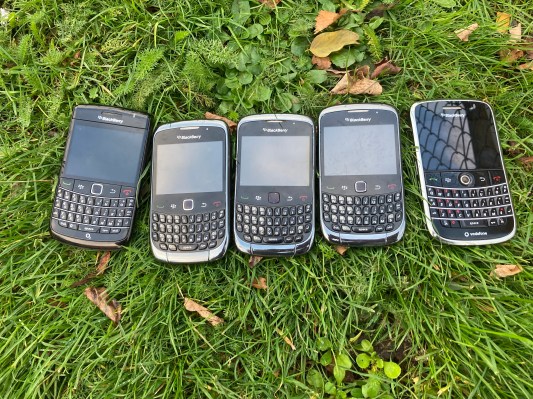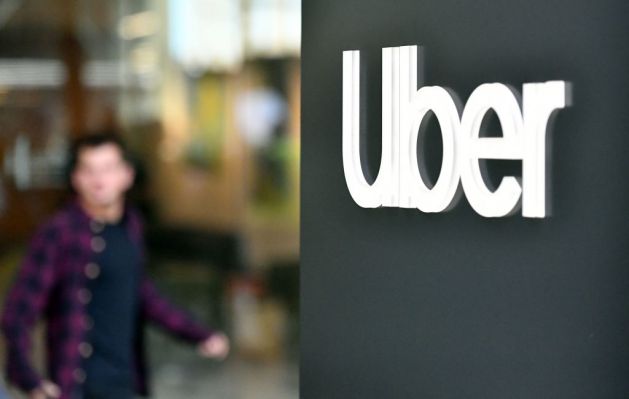BlackBerry phones once ruled the world, then the world changed – TechCrunch

It’s easy to forget now in the age of Apple and Android, but at one time, BlackBerry once owned the business smartphone market. You could have your Motorolas and your Nokias and your Samsungs, but for business, BlackBerry was it. Stalwart. Secure. Functional.
As TechCrunch reported this morning, BlackBerry is shutting down its remaining services, and users running BlackBerry devices with BlackBerry OS 7.1 and BlackBerry 10 — and you have to wonder just how many there are left — will no longer have access to data or even the once famous BlackBerry messaging service, among other things. It’s all getting shut off tomorrow.
As that fateful shutdown day approaches, it may be hard to understand just how ubiquitous the BlackBerry was before iPhone and Android came along, and just how precipitous its market share drop was. People loved their BlackBerrys with the combination of external keyboard and messaging service as a way to communicate with colleagues outside of the office. For better or worse, the BlackBerry ushered in the mobile era for many business people.
Comscore tracked mobile market share data back when BlackBerry reached the height of its power in 2010 as the top smartphone platform with 43 percent. This would be the high water mark for the company. (Note that these numbers measure the platform ubiquity and not units sold.)
| Month/Year | Market Share (as measured by top smartphone platforms) |
| Jan 2010 | 43 percent |
| Jan 2011 | 30.4 percent |
| Jan 2012 | 15.2 percent |
| Jan 2013 | 5.9 percent |
As you can see BlackBerry phones went from top of the smartphone heap to single digits in the blink of an eye, losing large swaths of market share as it got completely disrupted by Apple and Android touchscreens. BlackBerry eventually reacted to these changes, releasing the BlackBerry Torch in 2011, but it was far too little and far too late. Plus in a classic case of disruption, the people who loved the external keyboard never took to the BlackBerry touch screen.
One other move among many included teaming with Microsoft in 2011 to make Bing the default search engine on BlackBerry phone, which in retrospect feels like a bit of a desperation move, but at the time was viewed more positively that the company was trying things. Whatever they tried, though, it didn’t work.
As the company’s fortunes plunged, they hired John Chen as CEO in 2013, who began the process of shifting the company from phones to security software.
Why security? Well, because BlackBerrys always had a reputation as being rock-solid when it came to security, so it seemed like a reasonable pivot. The company announced the change officially in 2016. Today, the company focuses entirely on selling security software to enterprises and governments. It has a modest market cap of around $5 billion, but it’s still around.
As my colleague Brian Heater pointed out in today’s article, there are still BlackBerry-style devices out there, but they don’t run the old BB operating system:
There are, of course, plenty of options out there – though OnwardMobility, which promised a 5G BlackBerry branded device is currently still MIA, in spite of promising an announcement in 2021. There’s always the OSOM device, which sports its own Canadian pedigree. Though, again, that privacy-focused product won’t be announced until Mobile World Congress at the end of next month.
But the beloved BlackBerry, once the constant companion of business people and politicians is going to be left to history, another device disrupted by the next big thing.



Pingback: Where to buy Psilocybe Azurescens Mushroom online Australia
Pingback: lyophilized goldmember magic mushrooms germany
Pingback: internal quartz standard dmt
Pingback: Mushroom Golden Teacher
Pingback: Online medicatie kopen zonder recept bij het beste Benu apotheek alternatief in Amsterdam Rotterdam Utrecht Den Haag Eindhoven Groningen Tilburg Almere Breda Nijmegen Noord-Holland Zuid-Holland
Pingback: browning shotguns